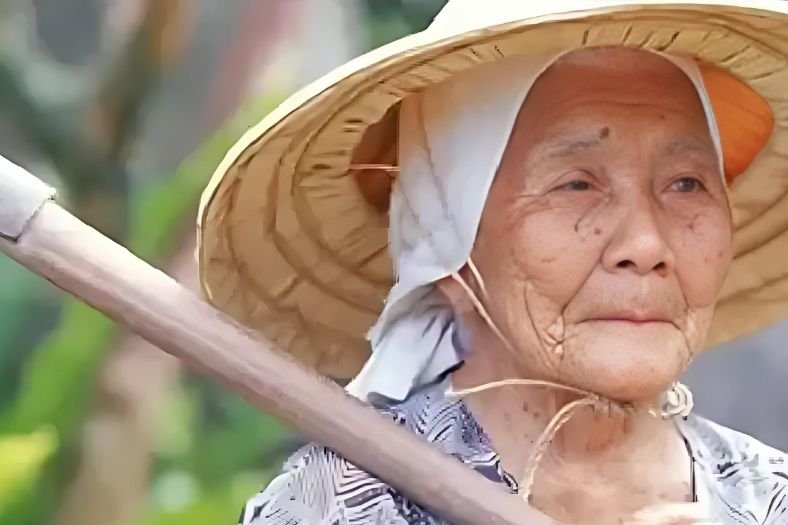My journey into the heart of Ikigai began with a transformative trip to Okinawa, Japan. It was here, amidst the tranquil beauty and the wisdom of its centenarians, that I discovered a profound philosophy that reshaped my perspective as a health professional. Among these inspiring individuals was Hana, a vibrant 103-year-old, whose life exemplified the essence of Ikigai. Her story not only deepened my understanding of this concept but also highlighted its significance for personal and professional wellbeing in the challenging field of healthcare.
Ikigai, a Japanese concept meaning “a reason for being,” involves finding joy and purpose in life through a balance of four elements: what you love, what you are good at, what the world needs, and what you can be paid for. This philosophy is particularly resonant in Okinawa, known for its high number of centenarians and their remarkable quality of life.
Hana’s Story: A Case Study of Ikigai in Action
Hana’s life in Okinawa is a testament to living one’s Ikigai. At 103, she maintains an active lifestyle through gardening, contributes to her community by sharing her produce and weaving skills, and finds joy in preserving and passing on Okinawan culture. Her story illustrates the profound impact of living a balanced life that encompasses personal passions, community involvement, and a sense of purpose.
Hana embodies the essence of Ikigai, demonstrating how this philosophy is intertwined with everyday life and wellbeing. Hana’s story is a perfect illustration of how Okinawans live their Ikigai.
- What She Loves – Gardening and Community Involvement: Hana has always loved gardening. Even at her advanced age, she spends time every day tending to her vegetable garden. This activity isn’t just a hobby for her; it’s a source of joy and a way to connect with nature and her community. She shares her produce with neighbors, fostering strong community bonds.
- What She is Good At – Weaving and Teaching: Hana is also skilled in traditional Okinawan weaving. Over the years, she has taught this craft to younger generations, passing on cultural traditions and skills. Her expertise in weaving is not only a source of personal pride but also a way to contribute to the preservation of local culture.
- What the World Needs – Cultural Preservation and Wisdom: Hana believes in the importance of preserving Okinawan culture and traditions. Through her weaving and storytelling, she imparts wisdom to the younger generations. Her role in the community is valued, as she helps maintain a link to the past and offers guidance based on her extensive life experience.
- What She Can Be Paid For – Selling Weaves and Produce: Although financial gain is not her primary motive, Hana does sell some of her weaves and excess produce. This aspect of her life reflects the practical side of Ikigai, where her passions and skills also contribute to her livelihood.
The Impact of Ikigai on Wellbeing
Hana’s lifestyle exemplifies how Ikigai contributes to wellbeing:
- Physical Health: Her daily activities, like gardening, keep her physically active, which is crucial for maintaining health in old age.
- Mental and Emotional Health: Engaging in meaningful work and hobbies provides her with a sense of purpose and joy, which is vital for mental and emotional health.
- Social Wellbeing: By being an active member of her community, she enjoys strong social support, which is known to be a key factor in longevity and happiness.
- Cultural Continuity: Her contribution to cultural preservation enriches not only her life but also the lives of those in her community.
The Current Challenges in Health Profession
Hana’s story is a vivid illustration of Ikigai in practice. For health professionals, this translates to finding a balance between their professional responsibilities and personal passions. It’s about identifying what they love in their work, what they are skilled at, how they can contribute to the greater good, and ensuring that their career supports their livelihood. Just like Hana balances gardening, weaving, teaching, and community involvement, health professionals can balance their clinical duties with research, teaching, or even hobbies outside of work that bring them joy and fulfillment.
The healthcare profession, with its demanding nature, long hours, and emotional toll, often leads to burnout and a lack of work-life balance. This makes the pursuit of Ikigai not just beneficial but essential for health professionals seeking a more harmonious and fulfilling career and life.
Why Ikigai is Essential for Health Professionals
- Combating Burnout: Embracing Ikigai can provide a safeguard against the stress and burnout prevalent in healthcare, helping professionals find meaning and joy in their work.
- Enhancing Job Satisfaction: By aligning their profession with their passions and skills, health professionals can experience greater job satisfaction and effectiveness in patient care.
- Personal Wellbeing: Ikigai encourages a holistic view of life, prompting individuals to nurture their interests and talents outside of their professional identity.
- Professional Development: Understanding one’s Ikigai can lead to more focused career goals and a sense of fulfillment in professional achievements.
- Building Resilience: A balanced lifestyle, as advocated by Ikigai, fosters resilience against the rigors of the healthcare profession.
The case of Hana in Okinawa vividly demonstrates how Ikigai is more than just a concept; it’s a practical and fulfilling way of life. For health professionals, adopting this balanced approach can lead to enhanced wellbeing, resilience, and a deeper sense of satisfaction in both their personal and professional lives. As my understanding of Ikigai deepened during my stay in Okinawa, I realized that it’s not just about finding purpose; it’s about living a life that is rich in passion, satisfaction, and community connection.



0 Comments